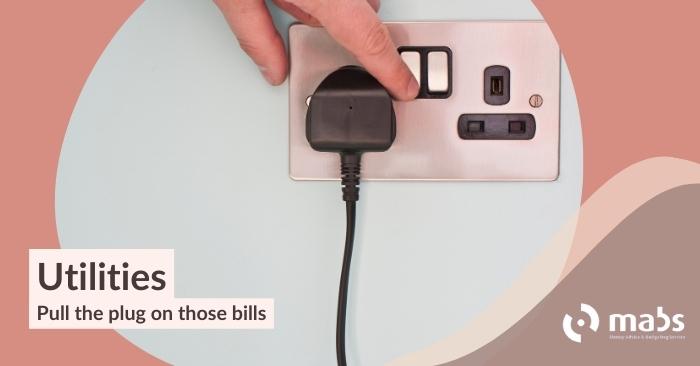Utilities costing a lot? Pull the plug on those utility bills!

In 2022, we saw big increases in the cost-of-living, which included things like our food shop, fuel, utility costs and energy bills.
Whether you are an individual, household, family or business, the increase in utility costs was felt by most. In an effort to try decrease our utility bills, where possible, people want to know how do you really reduce your energy and as a result cut those bills?
In today’s blog, we are going to look at why it’s important to save energy and how to go about it.
Why save energy?
When we try to reduce how much energy is used at home, this will help to save money on gas and electricity bills. But trying to be more energy efficient can also benefit the environment. We are going to look at 4 simple ways to reduce your use and improve your home’s efficiency:
1. Plug out
Home appliances left on standby use electricity, even when not in use. Turning your appliances off at the wall, when you are not using them, lowers your electricity costs, especially if you live with a busy family.
Consider pulling the plug instead of leaving these appliances on standby:
- TVs
- Laptops and desktop PCs
- Games consoles
- HiFi systems
- Set-top boxes
- HDR recorders
- Digital radios
- Mobile chargers
2. Be bright when it comes to your lights
Try to avoid turning on lights until necessary and do not forget to turn off when leaving a room.
If possible, utilise any natural daylight you have at home and only turn lights on when it becomes darker in the evening.
There are some light bulbs that are really good when it comes to energy efficiency. Think about replacing your current lightbulbs with these, a good example of energy efficient bulbs is LED lights. Select the lowest wattage bulb needed to light the room or area.
Side note- if you are interested in switching energy providers to see if you could make some savings, check out our Switcher Blog for more top tips.
3. Cook up some savings
When preparing meals using your oven, ensure the over door is closed. Consider batch cooking your dinners, for example, as this will save your time and energy. Our MABS 101 Square Meals Cookbook includes plenty of low-cost recipes, perfect for batch cooking.
MABS 101 Square Meals Cookbook (PDF)
If you are making a cup of tea, do not boil the full kettle for one cup only. Boil enough water for the number of cups of tea you want to make at any time. So, if you are making a cuppa for yourself, boil enough water for one cup or the minimum amount of water your kettle will allow.
When cooking, the microwave is a good way of saving energy too. Where possible, use your microwave for cooking and use a toaster instead of turning on your grill.
4. Don’t be in hot water with your bills
Running water from a shower or tap can be turned on quickly, therefore, costs add up quickly!
When it comes to showers. A shower typically uses 20% of the energy compared to a full bath, so keep the bath as a treat. Set your hot water thermostat to between 60-65°C, to make sure that you do not overheat your water.
Don’t leave the hot tap running – you are pouring energy and money down the drain.
We hope you found this blog helpful when it comes to tackling your utility costs and bills. Have you got your own question about utilities or perhaps you are in utility arrears and want to discuss your situation with an adviser?
Contact Us
You can call the MABS National Helpline on 0818 07 2000 Monday to Friday, from 9am to 8pm or find the contact details for your local office.
Would you like us to cover a particular topic in our next blog? Please let us know by messaging us on Facebook, Instagram., or Twitter. Don’t forget to follow us too at @MABSinfo.
Disclaimer: Every effort has been made to ensure this information is current and correct. The details of each case can be unique. As a result, the outcome can be different to what has been described in this blog.
Note: We welcome references to and use of the content in this blog. However, please reference MABS and link said content if you choose to do so.




Facebook
twitter
Instagram